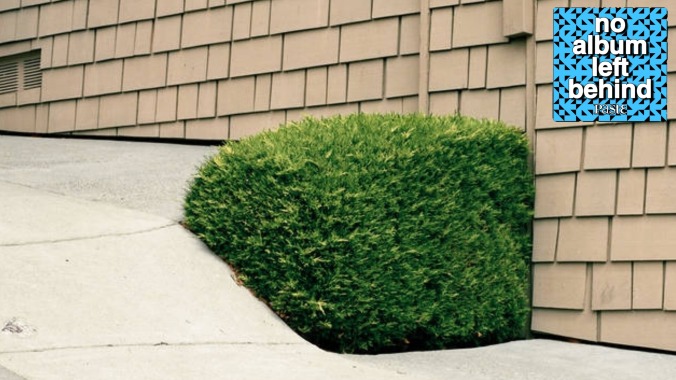No Album Left Behind: Ezra Feinberg, Soft Power
Ezra Feinberg's third album, Soft Power, features songs that are peaceful while also surging with forward momentum, a mesmerizing paradox reminiscent of the ocean’s serene yet ever-churning waters.

I happened across Ezra Feinberg’s exemplary third album, Soft Power, in my favorite way possible: by pure chance. My husband and I were listening to RTÉ lyric fm, Ireland’s classical radio station that gets turned over to the music weirdos after 7pm. On that particular Sunday evening, the DJ played a Feinberg track that immediately made me sit up a little straighter in bed. “Future Sands” (ft. David Lackner) sifted into my ears: lithe flute, hypnotically hand-picked guitar, delicate arpeggiated synth, a digital chorus and atmospheric whooshes of sound, like the wind whistling over desert dunes. The song was somehow peaceful while it surged with forward momentum, a mesmerizing paradox reminiscent of the ocean’s serene yet ever-churning waters.
This sort of cerebral songwriting—with shifting layers and dynamics that seem to cast a spell on the listener—feels utterly fitting when you learn that Feinberg is a psychoanalyst, as well as being a composer, guitarist and a founding member of the psychedelic band Citay. He creates music that feels like a cheat code for my brain, the sort of sounds that, depending on what I need, can provide me with a moment of much-needed calm, or the right level of focus to get through the next task.
Soft Power was released on May 31 this year via Tonal Union, and over seven tracks it unfurls with a natural grace. Feinberg explained the album’s mission statement in a press release: “Much like everyday life, I wanted to convey these very plain, simple, tranquil, nearly quotidian aspects, but each piece contains this arc in which that form expands, is broken out of, so what starts out like a painting of flowers in a seaside motel turns into a riot of color and sound, or you feel slipped into a dream that feels like it could go on forever.” I can safely say that he achieved all that and more on the record. Even the album’s cover—a curved hump of a bush, tucked away between the slope of a sidewalk and a neatly shingled building—evokes this feeling of the everyday suddenly becoming more when you give it a second glance. There’s a neatness to the organic being sandwiched by the manmade, and a boldness in the green bursting out from the beige and gray, both of which bring to mind Feinberg’s precise yet daring songwriting.
Composer and multi-instrumentalist David Lackner features on the first two tracks—”Future Sand” and “Soft Power”—playing flute and electronic wind instrument. The name of the opener brings to mind the notion that one day, we will be reduced not just to rubble, but infinitesimally small pebbles in a vast, luminous desert. I’m not religious anymore, but I still find a strange serenity in what God told Adam and Eve in Genesis: “Remember you are dust, and to dust you shall return.” Instead of existential dread, Feinberg and Lackner’s playful composition invites us to revel in the oneness and peace to be found in how time brings us all together, forming future sand. Meanwhile, the title track is guitar-forward from the get-go, backed by shaking percussion and occasionally some synth dancing in. A steady rhythm pulls the song forward, like its own form of gravity, and a simple, effective earworm provides the central melody. “The most unexpected, unpredictable and spontaneous moments in life live in the realm of softness,” Feinberg says of “Soft Power,” and I can’t help but agree. There’s a liveliness and a mischievous to Feinberg’s songwriting here, amidst all the gossamer sounds.
-

-

-

-

-

-

-

-

-

-

-

-

-

-

-

-

-

-

-

-

-

-

-

-

-

-

-

-

-

-

-

-

-

-

-

-

-

-

-

-








































